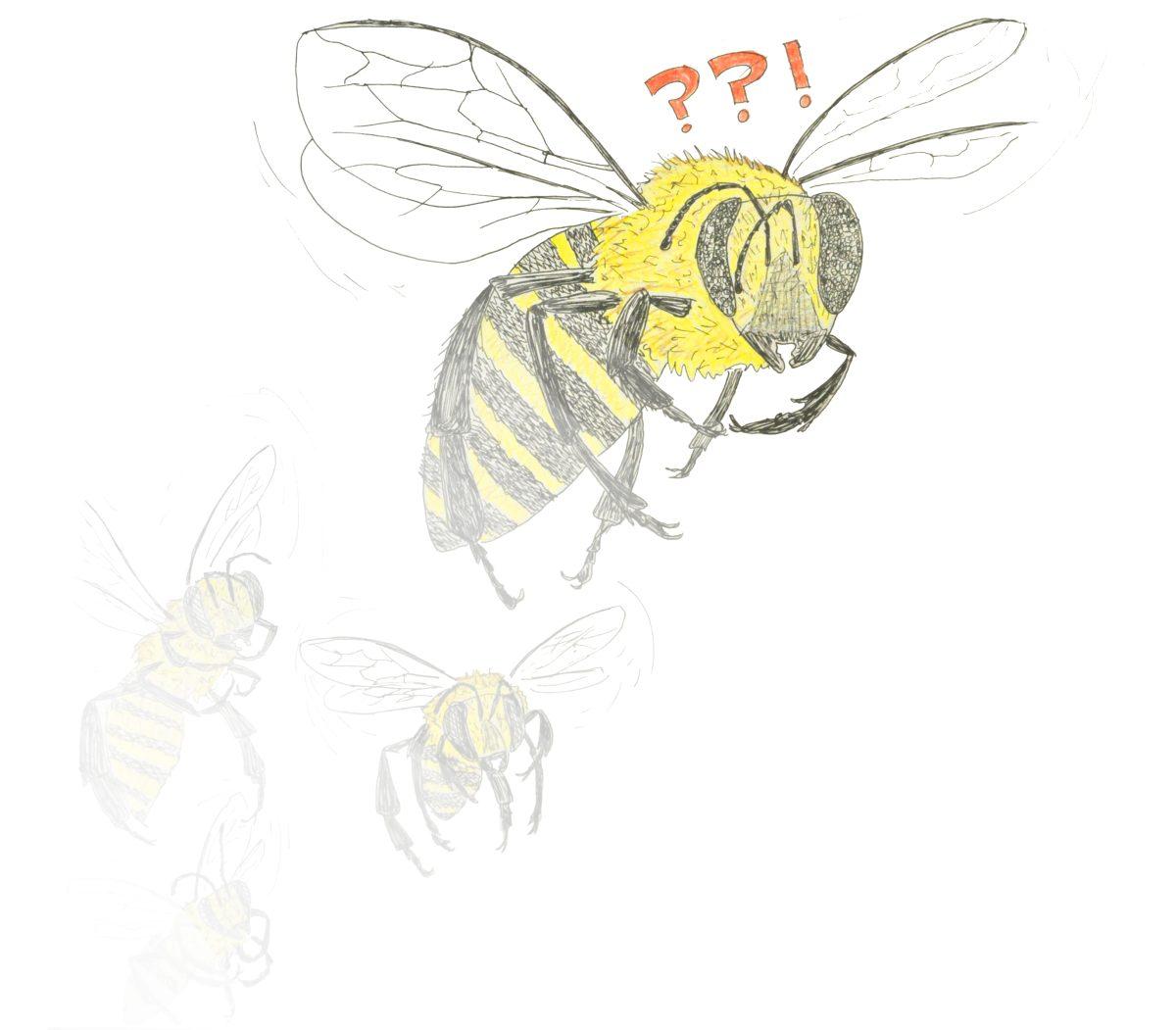Bees are deserting their hives in record numbers, but a recent study by an N.C. State professor could help solve the mystery of bee colony collapse.
Extension Apiculturist and associate professor of entomology at NCSU, David Tarpy, recently released his study that he did in conjunction with the University of Maryland, Pennsylvania State University and the USDA-ARS Bee Research Laboratory.
In his research, Tarpy said that the idiopathic brood disease syndrome (IBDS) might be able to help explain why bee colonies are collapsing.
This is the first time since the issue arose a few years ago that anyone has completed extensive research on colonies lasting an entire season, according to a University press release.
Honey bees are the most important pollinator in the world and biggest contributor pollinating fruits and vegetables, according to sustainweb.org.
Typically IBDS is associated with colonies that contain a large scale of infestations, however Tarpy said he discovered IBDS in colonies with low levels of infestations.
“This is not what we expected,” Tarpy said.
Jennifer Keller, research specialist and apiculture technician, said theories as to why colonies are collapsing all over the country range from cell phone towers affecting the colonies to new miticides.
“Since the bees pollinate our food, we need them,” Keller said.
There were declines in the ‘80s and ‘90s due to new mites, Keller said, but the recent collapse of colonies is like nothing that’s ever happened before.
According to Keller, it is normal to see about 30 percent of bees dying out every year with the beekeepers rebuilding their numbers over the summer, but over the past few years the numbers have been much higher than that.
North Carolina has been fortunate enough not to have experienced any reported cases of colony collapse disorder, Keller said, but the rest of country hasn’t been so lucky.
Farmers have to pay more to make sure their crops are adequately pollinated, Keller said, due to a lack of bees.
Caitlin Neal, a freshman studying agricultural business management, is a novice beekeeper from Wilmington and recently experienced the collapse of her bee colony.
“My problem might have been that I got the queen too late and my bees became distressed, but I really have no idea,” Neal said.
Neal became a novice beekeeper during her senior year of high school and has been doing it ever since. She hopes to restart her colony in May.
“To become a beekeeper, you need to do a lot of research on how to care for bees and attend classes to learn how to order bees and start a hive,” Neal said.
Before the bees are ordered, a novice beekeeper needs the proper equipment to care for the bees. A water source, sunlight, access to plants and a white beekeeping suit are a few of the items a novice beekeeper needs, Neal said.
Neal said new beekeepers need to make sure they only wear white since white calms the bees and dark colors agitate them.
“I made the mistake of wearing dark pants when I showed my hive to my boyfriend,” Neal said. “It was really silly and it was the only time I’ve ever been stung.”
Colors, however, aren’t the reason for the collapse of colonies nationwide. Neal said she believes there may even be a new disease spreading around. Regardless, Neal said she plans to stick with beekeeping and hopefully make it into a career one day.








